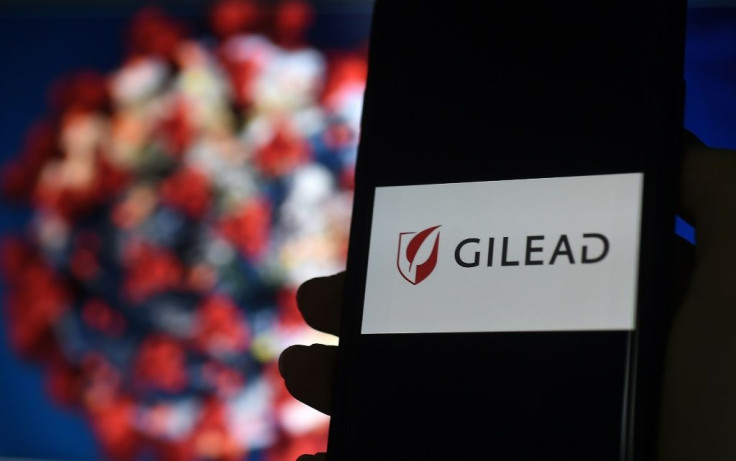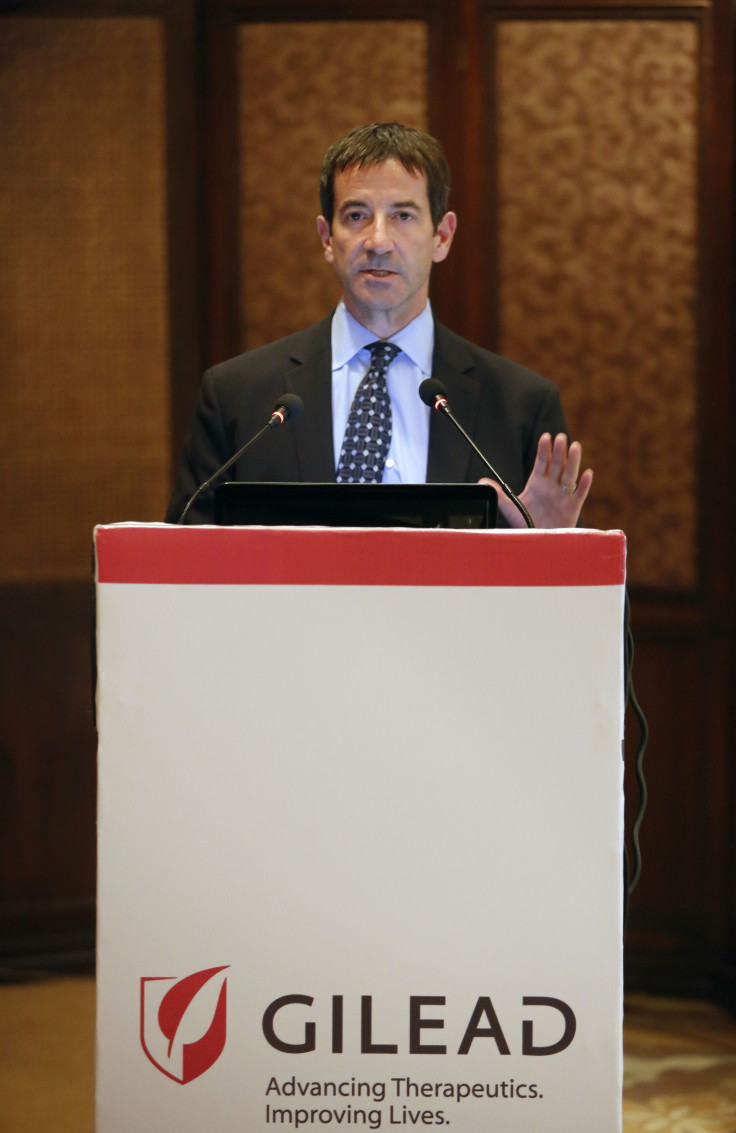Coronavirus Treatment: Gilead's Remdesivir Caused 'Rapid Recoveries' In Patients Treated With Drug

KEY POINTS
- Remdesivir, an antiviral drug from Gilead Sciences, Inc., will likely become the first drug approved for the treatment of COVID-19
- “The best news is that most of our patients have already been discharged, which is great," said the doctor in charge of a clinical trial in Chicago
- “Remdesivir was a miracle,” said a formerly severely ill patient who was treated with remdesivir and discharged from hospital after only three days
Remdesivir, an antiviral nucleotide analog drug developed by Gilead Sciences, now stands on the brink of becoming the first drug to be approved as a cure for COVID-19, after encouraging news from clinical trials being conducted at a Chicago hospital.
The phase three clinical trial by the University of Chicago Medical Center (UChicago Medicine) saw rapid recoveries from fever and respiratory symptoms among nearly all patients severely ill from COVID-19 after treatment with remdesivir. Most of these severely ill patients were discharged in less than a week from the hospital.
The phase three trial involved 125 patients infected with COVID-19. Of this number, 113 were severely ill from SARS-CoV-2 (severe acute respiratory syndrome coronavirus 2), the virus that causes COVID-19. All the patients were treated with daily infusions of remdesivir.
“The best news is that most of our patients have already been discharged, which is great," said Dr. Kathleen Mullane, the UChicago Medicine infectious disease specialist overseeing the remdesivir studies for the hospital. "We’ve only had two patients perish."
One of the patients involved in the trial who fully recovered was a factory worker from Chicago, who was infected by his daughter. He was given his first intravenous infusion of remdesivir on April 4.
“My fever dropped almost immediately and I started to feel better,” he told STAT, the American medical news website. STAT cited a video it obtained where the remdesivir phase three results were discussed.
The patient said by the time of his second dose the next day, he was being weaned off oxygen. He received two more daily remdesivir infusions and was well enough to be discharged from the hospital on April 7.
“Remdesivir was a miracle,” he said.
The positive results from the Chicago clinical trials support findings in a study published April 10 in The New England Journal of Medicine (NEJM). This study revealed significant clinical improvements in 36 of 53 patients who were given remdesivir over a period of 41 days.
The study showed doctors were able to reduce the amount of oxygen support needed in 68% of these patients (36 out of 53) over a median follow-up of 18 days from the first dose of remdesivir. More importantly, 17 of 30 patients on ventilators were able to come off the machines. Nearly two thirds of patients (64% or 34 out of 53) were on ventilators, of which 30 were on mechanical ventilation and four were on extracorporeal membrane oxygenation.
This finding was important because COVID-19 patients on ventilators were more likely to suffer long-term health consequences. New York governor Andrew Cuomo last month revealed an 80% death rate for patients on ventilators in New York hospitals.

News of the stunning success of remdesivir at UChicago Medicine saw Wall Street stock futures surge Thursday night, heralding a second rally in as many days. Dow Jones Industrial Average futures were up 903 points (3.9%). S&P 500 futures advanced 3.4% while NASDAQ 100 futures improved by 2.6%. Gilead shares jumped by 14% in after-hours trading.
“This is obviously good news," said Matt Maley, chief market strategist at investment advisor Miller Tabak + Co., LLC. "Of course, we’ve heard a few other pieces of good news like this recently and they didn’t pan-out as well as people had hoped. The big question is whether it’s going to be enough to help the economy re-open more quickly than people are thinking right now.”
Tom Lee, head of research at Fundstrat Global Advisors, said an effective COVID-19 treatment was a huge deal that will create a path to open the economy and resume normal social activities "way sooner than a vaccine. A treatment is safer and more scalable because it is only given to people who need to be treated.”
© Copyright IBTimes 2024. All rights reserved.





















